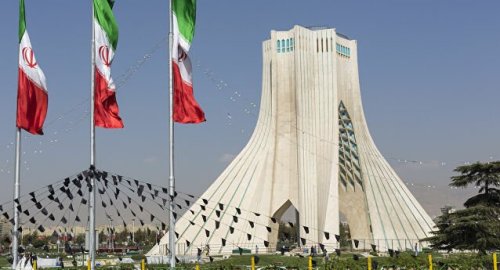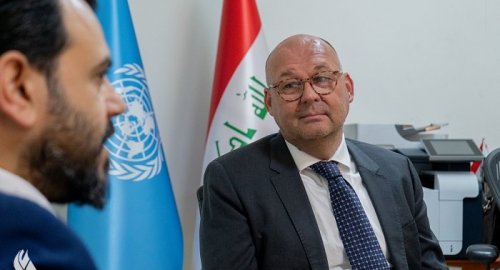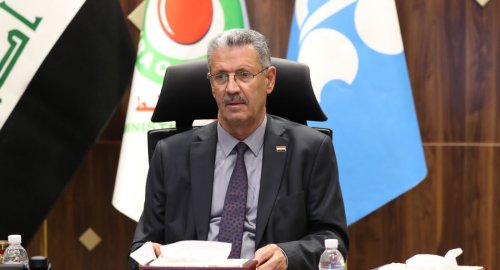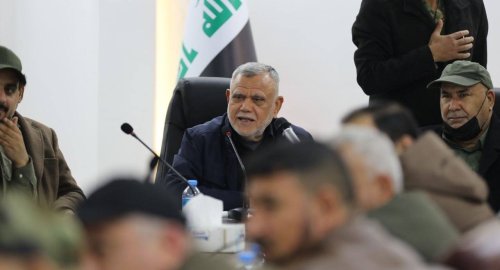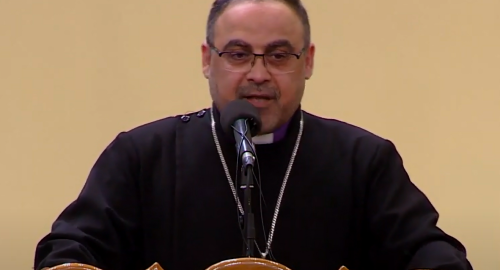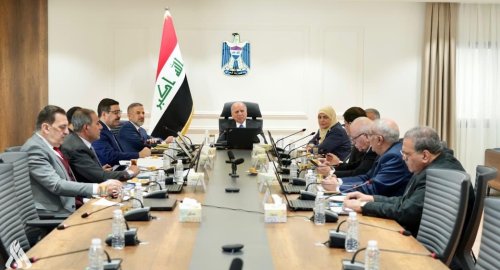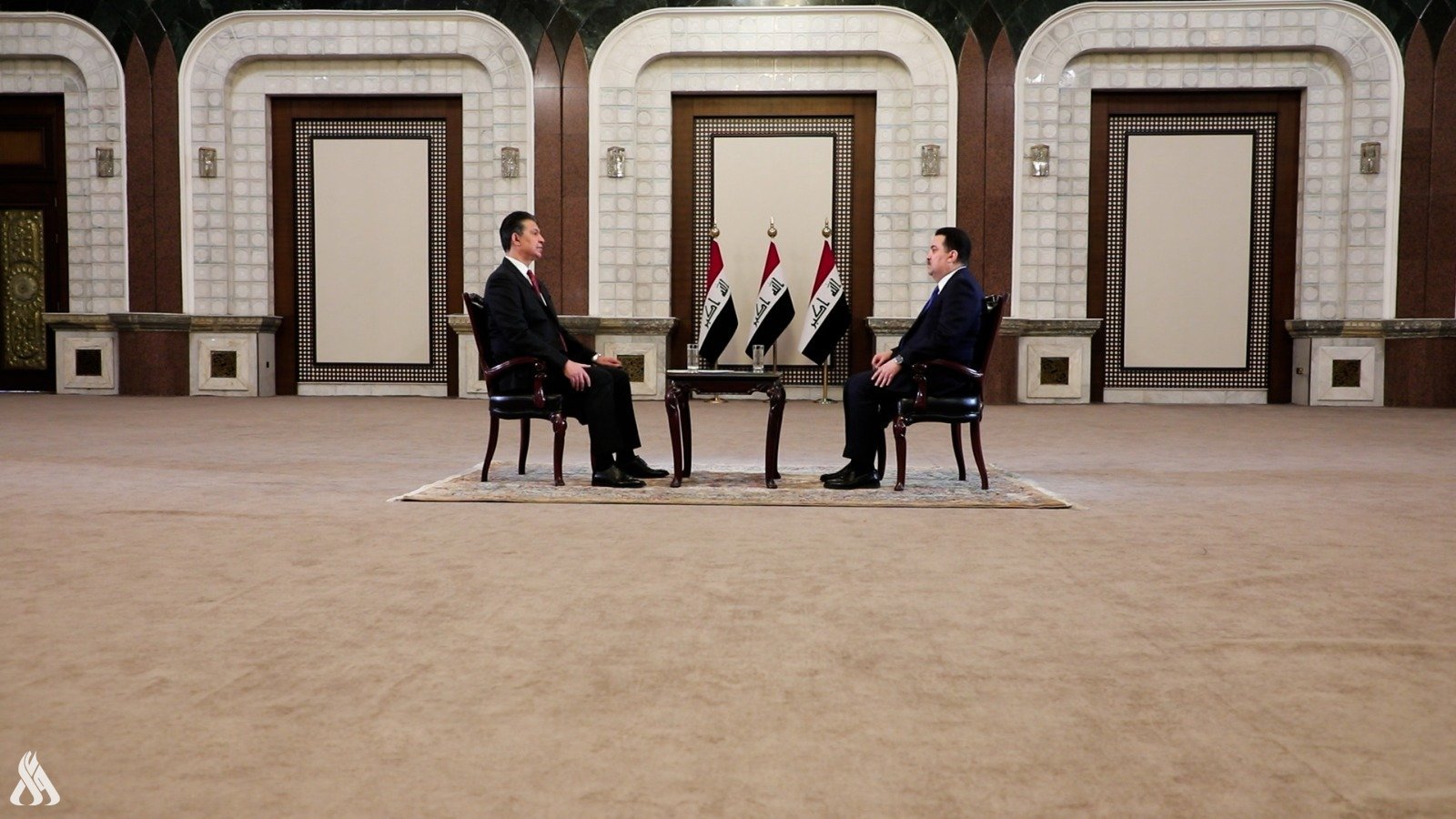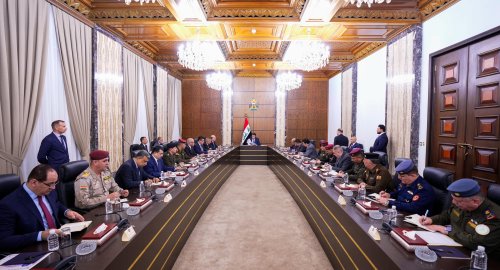
Commander-in-Chief Chairs the Emergency Meeting of the National Security Council, Issues Key Directives

- 19-11-2024, 22:34
Baghdad-INA
Prime Minister, Commander-in-Chief of the Armed Forces, Mohammed S. Al-Sudani, chaired an emergency meeting of the National Security Council today, during which regional and international security developments were discussed.
“The National Security Council emphasized Iraq’s firm rejection of the complaint issued by the Zionist authorities against Iraq, stating that these allegations are simply excuses intended to justify a planned aggression against Iraq by those authorities, marking a new attempt to escalate the regional conflict,” stated The Spokesperson for the Commander-in-Chief of the Armed Forces, Major General Special Forces Yehia Rasool in a statement, received by The Iraqi News Agency-INA.
The National Security Council reiterated the Iraqi government’s position, which has been repeatedly emphasized, that the authority to decide on matters of peace and war exclusively lies with the Iraqi government. It continues its measures to prevent the use of Iraqi territory for launching any attacks, which have already resulted in the seizure of weapons prepared for launch, and it is legally pursuing anyone involved in such activities that threaten Iraq’s security and territorial integrity.
The government also affirms that Iraq has a crucial role in supporting its brothers in the countries facing aggression, fulfilling its legal and moral duty to provide humanitarian, political, and legal assistance. Iraq is committed to curbing the actions of the occupying authorities and halting the aggression through international efforts, especially given the ongoing violations by the occupying forces of United Nations Security Council resolutions, which call for respect for national sovereignty, adherence to international law, and cessation of military operations.
“The recent allegations and actions by the occupying authorities represent a dangerous escalation and a deliberate attempt to manipulate international public opinion, justify aggression, undermine efforts to preserve peace and security, and heighten the risk of further expanding the conflict in the region,” the statement added.
Iraq reaffirms its commitment to international law and the United Nations Charter, strongly condemns the threats posed by the occupying authorities that seek to destabilize the region, and urges all parties involved to reject escalation, prioritize dialogue, and uphold the principles of international law.
In light of these developments, the National Security Council has decided the following:
1. Instructing the Ministry of Foreign Affairs to monitor and address the issue in international forums and before United Nations bodies, and to take all necessary steps, in accordance with the principles of international law, to preserve Iraq’s rights and deter the aggressive threats of the occupying authorities.
2. Urging the Arab League to adopt a strong and unified position against the threats posed by the occupying authorities, including concrete actions rooted in a shared destiny and collective defense.
3. Requesting the United Nations Security Council to review the complaints filed by the Republic of Iraq (Complaint No. ABM/1/185 dated 14/8/2024, and additional complaints submitted in October 2024) against the occupying authorities, and to implement deterrent measures to safeguard regional and international peace and stability.
4. Calling on the United Nations Security Council to take urgent and decisive action against the occupying authorities, ensuring accountability for their violations of international law and Security Council resolutions.
5. Issuing a Chapter VII resolution for an immediate ceasefire across the entire region, implementing strong measures to halt hostilities, and ensuring no party can initiate or justify acts of aggression based on baseless claims.
6. The United States, in cooperation with Iraq through security and military dialogues under the third section of the Strategic Framework Agreement, is urged to take decisive steps to deter the occupying authorities. Additionally, the international coalition and its member states are called upon to counter these threats and prevent the further escalation of the conflict.
The Commander-in-Chief of the Armed Forces has issued a series of key security directives, including:
1. The armed forces and all security agencies are to prevent and pursue any military activities outside of state control.
2. The Ministry of Interior is to implement the directives from previous meetings, prepare emergency plans tailored to the level of threat, and ensure all necessary security measures are in place.
3. Strengthening Iraq’s western borders through intensive operations, rapid deployment, and the development of comprehensive plans, ensuring the establishment of an effective security depth.
4.The Air Defense Command is responsible for securing Iraq’s airspace and protecting critical domestic assets.
5. Field commanders will be held accountable for any security breaches within their designated areas of responsibility that could jeopardize the country’s safety.
6. Intelligence agencies are tasked with analyzing, tracking, and monitoring any hostile air activities or ground attacks, pursuing the perpetrators, and providing real-time intelligence reports on all relevant incidents.
US Central Command: We killed ISIS terrorist leader Abu Yusuf in Syria
- International
- 24/12/20
Liverpool compete with Real Madrid to sign Olympique Lyonnais star
- Security
- 24/12/19
Iraq assumes presidency of Arab Investment Company’s Executive Board
- Economy
- 24/12/17
Hackers exploiting Microsoft Teams to gain remote access to user’s system
- Multimedia
- 24/12/17

